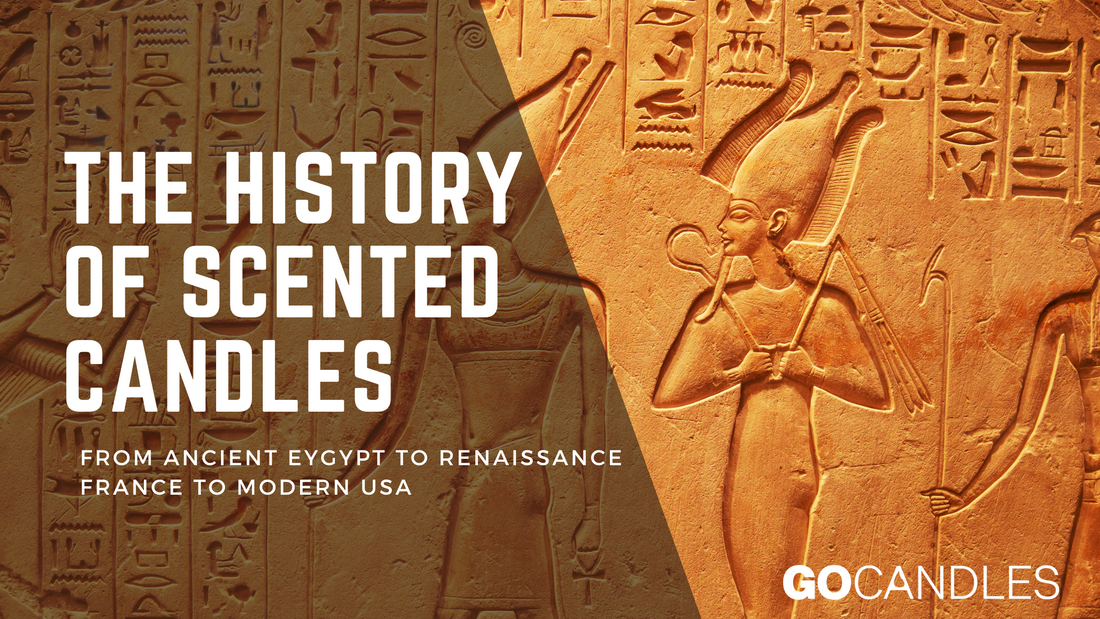
The History of Scented Candles
Share
More than just light in the darkness - candles have been used for generations across many cultures for scent and natural healing.
Candles have been used for thousands of years for various purposes, from providing light to religious rituals, but scented candles have a relatively shorter history. The idea of scented candles was born out of a desire to add fragrance to people’s homes and spaces, and to benefit from their natural calming and pleasurable effects.
The history of scented candles can be traced back to ancient civilizations such as Egypt, where candles were used for religious and practical purposes. The Egyptians were known for their use of aromatics and used candles made from beeswax, which had a sweet, honey-like fragrance. These candles were used for both lighting and scenting homes and temples.
In the Middle Ages, candles were still primarily used for practical purposes such as lighting and heating. However, the use of scented candles became more widespread as they were used to mask unpleasant smells in homes and public spaces. During this time, the use of scented candles became more popular in Europe, especially in France, where candles were made with fragrances such as lavender, rose, and vanilla.
During the Renaissance, the use of scented candles became more widespread among the aristocracy. People would burn candles made from beeswax and infused with fragrant oils, which were often imported from the Far East. The popularity of scented candles continued to grow throughout the 17th and 18th centuries, especially in England and France, where they were used in homes and palaces.
In the 19th century, the invention of paraffin wax made candles more affordable and accessible to the masses. This led to a rise in the popularity of scented candles, especially in the United States, where they were used for both lighting and fragrance. During this time, scents such as cinnamon, vanilla, and pine became popular.
In Asia, scented candles have an illustrious history as well. The Chinese used candles made from tallow and wax infused with herbs and spices. The Japanese also used candles made from beeswax and plant-based oils, which were used for spiritual and ceremonial purposes. In India, candles made from ghee (clarified butter) were used in religious ceremonies.
In the 20th century, scented candles became even more popular globally, thanks to advancements in technology and manufacturing processes. Today, scented candles are used for a variety of purposes, from aromatherapy to relaxation and ambiance. Scientific studies and research has shown the numerous benefits of scented candles, which has made them even more popular. Thousands of brands create scented candles, and many individuals design their own at home.
In conclusion, the history of scented candles is a long and varied one, with many different cultures and people contributing to its development over time. From ancient Egypt to Renaissance France to the USA, scented candles have played an essential role in adding fragrance and ambiance to our homes and other spaces.
Sources:
- "A Brief History of Candles," National Candle Association: https://candles.org/history/
- "The History of Scented Candles," Candle Making Techniques: https://www.candlemakingtechniques.com/the-history-of-scented-candles/
- "The History of Candles and Candle Making," The Spruce Crafts: https://www.thesprucecrafts.com/history-of-candles-and-candle-making-4119893
- "The Evolution of Scented Candles," The New York Times: https://www.nytimes.com/2020/09/30/t-magazine/scented-candles.html
- "A Brief History of Candles and Candle Making," ThoughtCo: https://www.thoughtco.com/history-of-candles-and-candle-making-1992346
